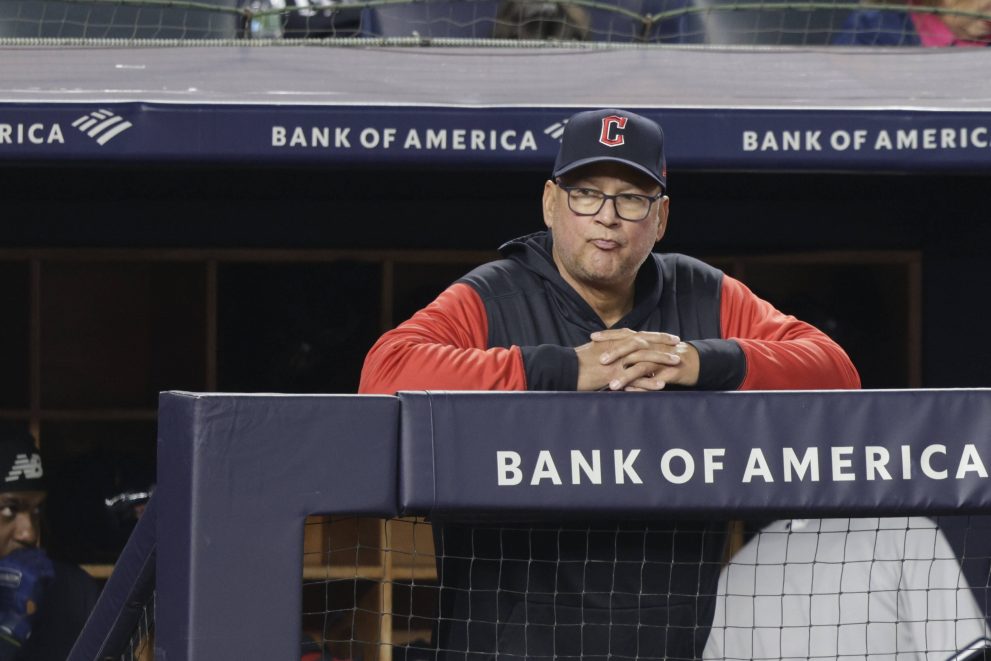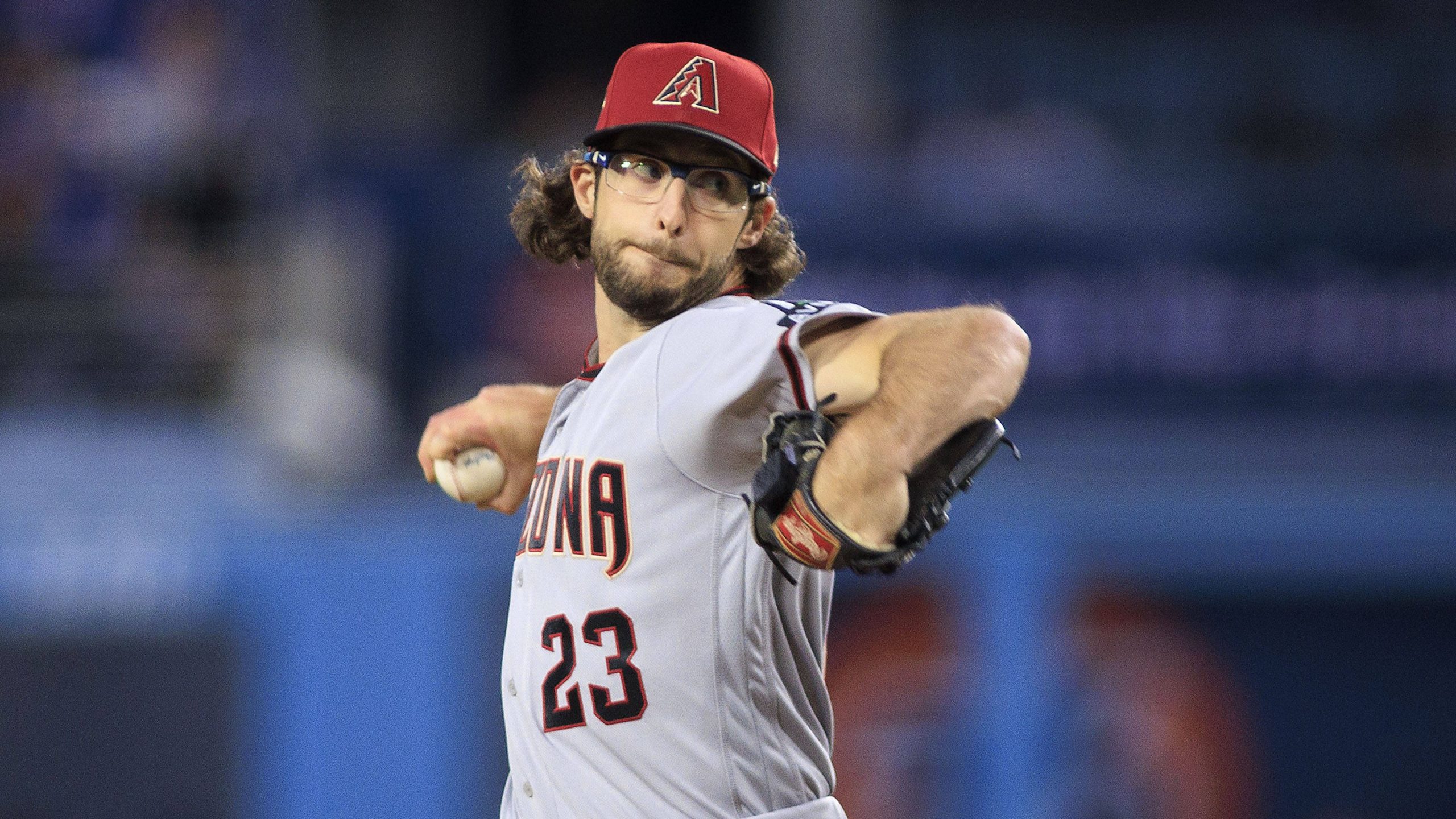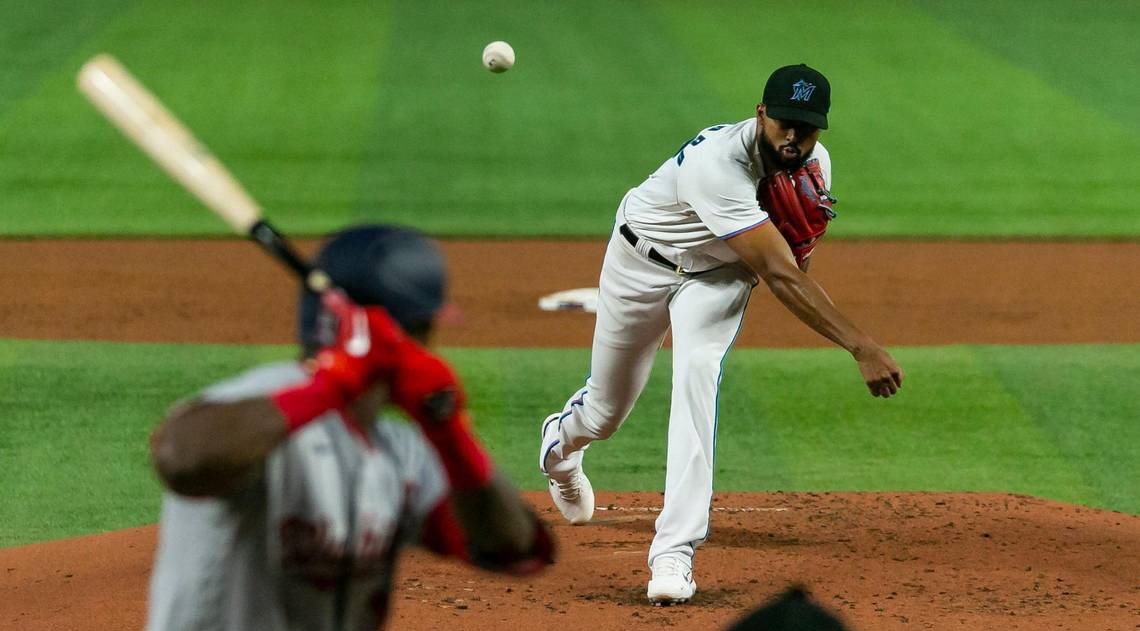Myles Straw has spent fewer than two months around Terry Francona, but that’s enough time for the Cleveland Guardians centerfielder to bestow plenty of complimentary adjectives upon his manager.
“He’s a baseball god, he’s a legend, he’s a Hall of Famer,” Straw said Sunday morning at Yankee Stadium.
Of course, Francona didn’t feel like a legend or a Hall of Famer while — his word — “waddling” out to the outfield at Yankee Stadium a day earlier to check on left fielder Steven Kwan after he’d crashed into the wall pursuing a game-tying hit by Isiah Kiner-Falafa in the ninth inning of what ended up being an eventful 5-4 win for the Yankees.
But his understated handling of the aftermath of the defeat provided more evidence of how the Hall of Fame-bound Francona — for whom the term “baseball lifer” is the highest praise while underselling just how comfortable he is in the environment — is essential to the Guardians in a way matched by few of his peers.
“Some interesting stuff happened,” Francona said, and that’s certainly one way to describe Saturday afternoon’s chaotic two-batter sequence in which Straw tried climbing the wall to confront the hecklers mocking the injured Kwan before some of those hecklers pelted Straw and fellow outfielder Oscar Mercado with debris after Gleyber Torres’ game-winning hit scored Kiner-Falafa.
Myles Straw is autographing photos of himself climbing the outfield wall at Yankee Stadium pic.twitter.com/oahj65foF6
— Jomboy Media (@JomboyMedia) April 26, 2022
But such a scene is more easily handled when you’ve seen and heard just about everything a person can see and hear in 50-plus years around major league clubhouses and stadiums.
Francona’s late father, Tito, collected 1,395 hits over a 15-year career, the bulk of which he played with Terry in tow. Terry Francona then won the Golden Spikes Award — presented annually to the best player in Division I college baseball — and became a first-round draft pick of the Montreal Expos in 1980.
Knee injuries marred Francona’s career (he was among the National League leaders in batting average upon suffering season-ending knee injuries in 1982 and 1984) and by 1992, he was a minor league manager in the Chicago White Sox chain. Two years later, he was managing the team’s Double-A affiliate in Birmingham, where one of his outfielders was a 31-year-old post-prospect named Michael Jordan.
Francona oversaw four losing seasons as the Philadelphia Phillies’ manager from 1997 through 2000, a span that ended with his car tires getting slashed the day he was fired. He returned to managing with the Boston Red Sox at the height of the Red Sox-Yankees rivalry in 2004, the year Boston overcame a three games to none deficit against the Yankees in the AL Championship Series before beating the St. Louis Cardinals in the World Series to snap the world’s most famous championship drought.
“It was like a badge of honor in the old (Yankee) Stadium, when you would stand there during the National Anthem and they would just like,” Francona said before pausing. “You know what, it was pretty cool.”
Francona spent eight seasons in Boston, winning another championship in 2007 while overseeing a motley crew of Hall of Fame-caliber players and alpha males while dealing with a front office and ownership group that could most charitably be described as “hands-on.”
“I mean, I grew up in a clubhouse, my nose is like three times too big for my face, I’m bald,” Francona said. “Thin-skinned isn’t — I know I have issues, but that’s probably not one of them.”
Terry Francona with the 2004 World Series trophy pic.twitter.com/1MvZZ88AVB
— Baseball In Pics (@baseballinpix) March 10, 2022
Francona’s self-deprecating description of himself Sunday matched, almost word-for-word, comments he made at his introductory press conference with the Red Sox. Yet he’s anything but the one-time chart-topper playing long-ago hits and delivering well-practiced schtick.
Francona has arguably done his best work with the Cleveland franchise, which is 148 games over .500 since his arrival in 2013 despite annually having one of the lowest payrolls in the game. His Hall of Fame credentials were cemented in 2016, when the then-Indians made it to the World Series and had a three games to one lead on the Chicago Cubs before the latter stormed back to win their first title in 108 years.
“It’s just an honor to play behind him — I think every single person in this locker room feels that way, we’d do anything for him and it’s the same way, he’d do anything for us.” Straw said. “He cares about everyone. Doesn’t matter who you are. Could be front office, you could be a player, the chefs — everybody. He takes care of everyone and that goes a long way.”
The pandemic was just one reason why Francona mostly missed out on that collectiveness the last two years. Francona managed just 14 games during the 60-game 2020 season after undergoing surgeries to repair blood clots and a gastrointestinal issue. He stepped away from the team last July 29 — the same day Cleveland acquired Straw from the Houston Astros — to undergo hip replacement surgery and another operation to repair his left big toe, which had been damaged by a staph infection.
“Having some normalcy back — even just visiting in person is so much better than the Zoom stuff,” Francona said. “You can convey things, I think, to people in person that you can’t over Zoom. Just nice to see people in person. Hopefully we continue to get closer to normalcy.”
For the Guardians to get better, Terry Francona says they just need to keep battling and not feel sorry for themselves.#ForTheLand pic.twitter.com/EA2RtCiEMA
— Bally Sports Cleveland (@BallySportsCLE) April 28, 2022
And for Francona, that means finding a way to turn Saturday’s chaos into a way to coalesce a team that seems to have a chance to compete in the AL Central — the Chicago White Sox, the overwhelming favorites, entered Thursday among the AL’s bottom five in both batting average and ERA while leading the majors with 20 errors — while also conveying he’d prefer the Guardians find less dangerous ways to bond.
“We kind of talk in spring training like, hey, when we get challenged, we don’t want to back down from challenges — we want to do it together,” Francona said. “Now, saying that, I don’t want Myles going in the seats. But he cares about his teammate and it’s legitimate and that’s good.
“Seems to me I think sometimes you’re emotional, things probably come out or maybe you wish (you) could have kept in. But that’s what emotions are.”
Most managers couldn’t find a modern way to deliver the message — that was great, never do it again — most famously uttered by fictional Cleveland manager Lou Brown. But most managers aren’t Francona, a baseball lifer finally back where he belongs.
“Meant to be here,” Straw said. “He’s definitely meant to be here.”







